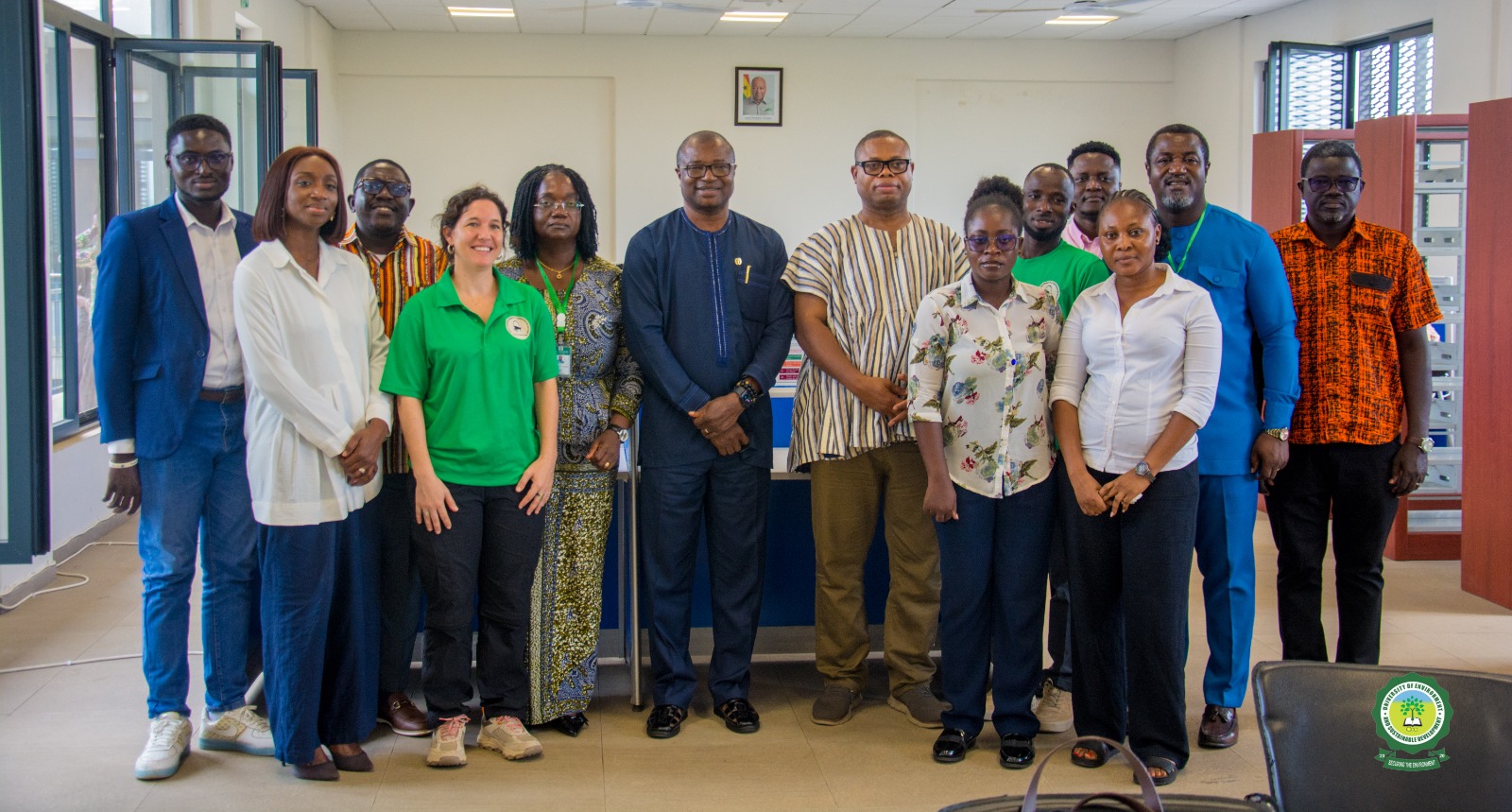The University of Environment and Sustainable Development (UESD) has hosted an engaging edition of the School of Natural and Environmental Sciences (SNES) and the School of Sustainable Development (SSD) Lecture series which brought together faculty, students, and key stakeholders to engage in critical discourse on socio-economic development, environmental sustainability, and conservation.It was held in collaboration with IMANI, Ghana, a centre for policy and education, WAPCA and Atlas Network.
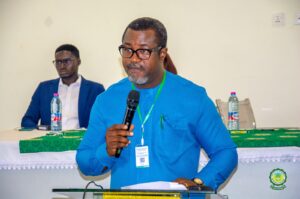
In his welcome address, Dean of SSD, Professor Anthony Amoah, underscored the importance of the lecture series as a strategic platform for academic exchange and real-world engagement. He described the series as central to UESD’s mission of connecting theory with practice and preparing students to contribute meaningfully to Ghana’s environmental and development agenda.
The event featured two main sessions: The first, led by IMANI Ghana, presented findings from recent research on Cement Pricing Regulation and the Cylinder Recirculation Model (CRM). Senior Research Associate, Mr. Dennis Asare, provided an overview of the research objectives, while Mr. Ransford Brobbey, Research Assistant, delivered a detailed presentation.
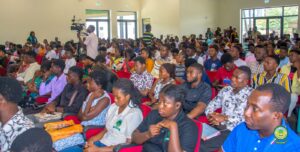
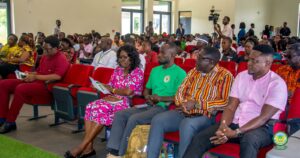
According to the findings, most of the factors influencing cement pricing in Ghana are external to manufacturing companies. As such, strict government controls or price ceilings could negatively impact cement quality. The research also raised concerns about the CRM, noting that limited access to cylinder exchange points in rural areas could discourage the use of liquefied petroleum gas (LPG), pushing low-income households toward charcoal and firewood, with potential implications for deforestation and climate change.
The IMANI team recommended alternatives such as targeted tax incentives and subsidies to reduce cement production costs, and industry-led safety reforms in the LPG sector. IMANI President and CEO, Mr. Franklin Cudjoe, reaffirmed the think tank’s advocacy for free-market principles and minimal government interference in pricing mechanisms.
The second session was led by the West Africa Primate Conservation Action (WAPCA), which focused on conservation education and career development. In a presentation titled “WAPCA – Our Journey in Primate Conservation,” Projects Coordinator, Mr. Foster Poasangma-Exsitu outlined the organisation’s work in protecting endangered species such as the Roloway Monkey, White-naped Mangabey, and Miss Waldron’s Red Colobus. He detailed WAPCA’s four-pillar approach: Discover, Protect, Reinforce, and Connect.
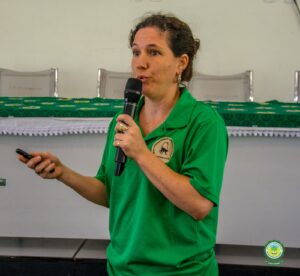
WAPCA’s Research and Education Coordinator, Ms. Nuria Badiella Gimenez, followed with a presentation titled “Pathways to Protecting Nature, Careers in Conservation.” She highlighted pressing threats to global primate populations and explored various career paths in conservation, including field research, veterinary care, NGO work, and eco-tourism.
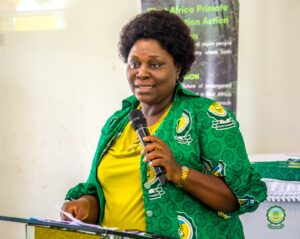
Senior Assistant Registrar at the Office of the Pro-Vice-Chancellor, Dr. Pardikor Madjitey, expressed appreciation to the WAPCA team for their inspiring presentations and their efforts in broadening students’ career perspectives in conservation.
The event concluded with a courtesy call on UESD’s senior management by both IMANI and WAPCA teams. They were received by the Vice-Chancellor, Prof. Eric Nyarko-Sampson, and the Registrar, Mrs. Mary Abena Agyepong, during which ideas were shared and pleasantries exchanged.

